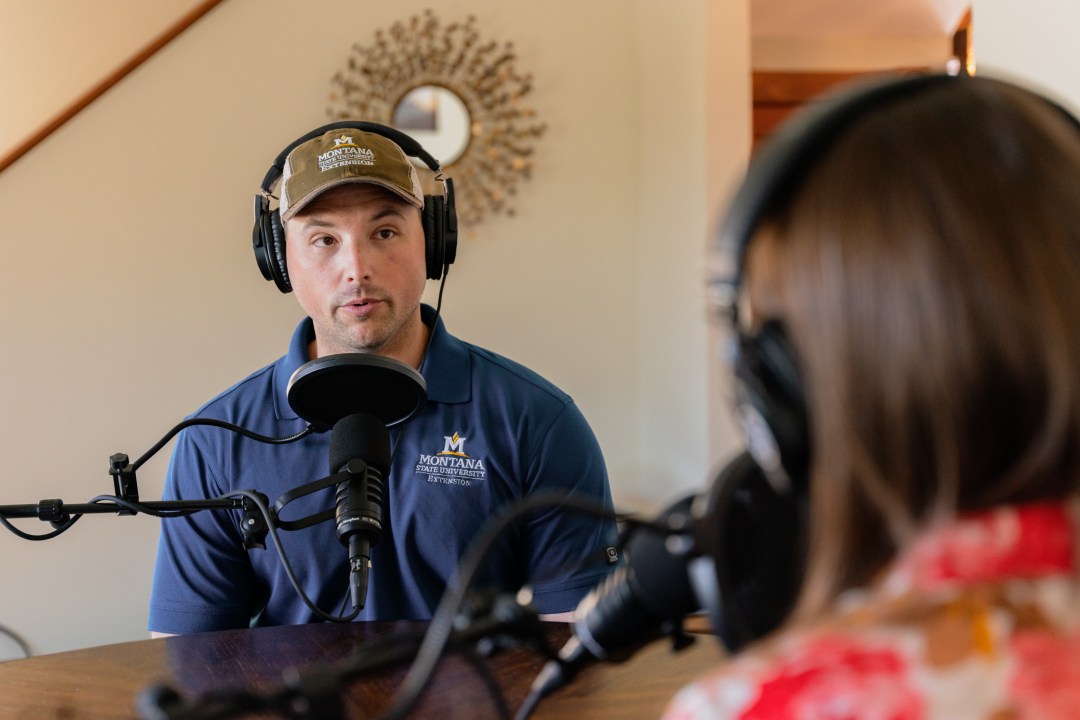

Wolves in the West: Finding common ground
In this episode of Down to Earth we’re talking to Jared Beaver, co-host of another podcast, Working Wild University a co-production between Montana State University Extension and the Western Landowners Alliance. The first season of the podcast takes on a hot-button issue: the presence of wolves on Western landscapes, and explores the economics of ranching, the importance of working lands for wildlife, the conflicts of values at the working land/wild land interface, and much more.
Jared Beaver is Wildlife Extension Specialist at Montana State University in Bozeman; he’s a wildlife biologist and manger, and he’s co-host with Alex Few, of the Working Wild U podcast.
Shownotes
4’42 how the podcast came into being
6’19 Jared’s history as a wildlife biologist/manager
7’17 what happened to wolves in the United States
8’45 problems with the Homestead Act of 1862
10’02 the economics of the fencing out and killing of wolves
11’16 the cultural fear and hatred of wolves
12’21 reintroduction of wolves into national parks and their migration onto grazing lands
13’05 variety of opinions about wolves among ranchers
14’16 ranches often have more wildlife habitat than farms that produce fruits, vegetables, and grains, and they use less water
15’09 the actual harm that wolves do to livestock
16’48 the economics of ranching
22’17 can holistic land management/rotational grazing protect against wolves, as bison protected themselves on the prairie?
24’04 conflicts of values about ranching, wildlife, and wolves–traditionalist vs. mutualist, conservation vs. preservation
27’02 what is the middle ground on this issue?
29’27 the coalitions of people getting together to work on this issue
32’15 the crucial ecological role played by working lands, i.e. ranches
33’03 the role of wolves in maintaining healthy ecosystems
34’47 the world of wolf watching around the borders of national parks
36’17 the problems that happen when wolves get habituated to people
37’51 what happens when wolves get used to eating livestock
39’24 the Four Cs approach: Compensation, Conflict Prevention, Control, and Collaboration
42’17 reactions to the podcast
photo credit: Zach Altman
More Episodes
Episode 183 – Landscape Restoration: Letting Nature Do the Work
Landscape Restoration: Letting Nature Do the Work Bill Zeedyk restores landscapes — streams, wetlands, even rural roads — by using simple, low-tech tools and letting nature do most of the work. The result is healthy, lush desert ecosystems. He's the subject of a new...
Episode 182 – Ducks, Cows, and Resilience: Benefitting Farmlands by Protecting Waterfowl Habitat
Ducks, Cows, and Resilience: Benefitting Farmlands by Protecting Waterfowl Habitat Since the 1930's, Ducks Unlimited has been protecting habitat for ducks and other migrating waterfowl, and has conserved over 18 million acres of wetlands and bird habitat in North...
Episode 181 – Animal Welfare is Good for Everyone — Including Farmers
Animal Welfare is Good for Everyone — Including Farmers Adam Mason is senior manager of Farm Animal Welfare and Environmental Policy at the ASPCA, the American Society of the Prevention of Cruelty to Animals. In our conversation, he talks about their multi-pronged...



